


What Parents Need to Know About The Reading Guarantee

According to a new research report, one in three Australian school students are not mastering the reading skills they need.
How children are taught to read has been a hot topic in Australia recently with the release of a new research report. In February 2024, the Grattan Institute, an independent think tank, published its report, ‘The Reading Guarantee’. The report sets out recommendations to guide government policy on how reading is taught in Australian schools. The authors of the report advocate for a nationally consistent, ‘structured literacy’ approach to the reading curriculum, with a focus on phonics in the early years.
We welcome the recommendations in the report, as structured literacy and explicit instruction form the foundation of how our Reading Eggs suite of programs teaches children to read. If you’re acquainted with our programs, you’ll recognise our strong emphasis on phonics and decoding. Notably, we have a dedicated program called Fast Phonics that focuses on systematic synthetic phonics, while phonics continues to be a crucial component of our core reading program, Reading Eggs.
The State of Reading Instruction in Australian Schools
According to the report, around one in three Australian school students are not mastering the reading skills they need.
Disadvantaged, regional and Indigenous students tend to face the biggest barriers to reading success. However, about one in four students that aren’t disadvantaged also struggle with reading.
The report points out that the way students are taught to read varies a lot across Australia. This is due to inconsistent guidance from government and decades of disagreements over reading instruction methods (known as 'the reading wars'). What's more, even within a school, different classrooms can have different teaching approaches.
Once a student falls behind, they tend to stay behind, and the gap widens over time as new knowledge and skills are built on a shaky foundation of poor reading ability.
Give your child the best chance for reading success!
Reading Eggs is based on solid scientific research and the six key sub-skills required for proficient reading. By incorporating our structured literacy programs into your child’s daily routine you’ll be helping your child to catch up, keep up and level up in their reading. Start your free trial today!
The ‘Structured Literacy’ Approach
A ‘structured literacy’ approach to teaching reading is best. It draws on decades of research evidence, including cognitive science, by explicitly and systematically teaching students the key sub-skills needed for reading, including phonics knowledge.”
- ‘The Reading Guarantee’, Grattan Institute (2024)
The ‘structured literacy approach’, or phonics approach, is in contrast to the ‘whole-language approach’ popularised in the 1970s. The debate around these two approaches is known as the ‘reading wars’. The whole-language approach follows the idea that learning to read is a natural, unconscious process. While the whole-language approach works for some, it doesn’t work for all.
As stated in the report, governments and education system leaders in Australia take a relatively ‘hands-off’ approach to mandating reading instruction practices in schools. As a result, schools and educators have been left to figure it out for themselves and the approaches are inconsistent across the country. The Grattan Institute’s report seeks to address the shortcomings resulting from this loose approach.
The Grattan Institute’s findings align with several previous international studies (refer to our article on the science of reading for more information).
The evidence is clear that learning to read is not a natural process and children should be explicitly taught how to read. Due to the complexity of the English language, the recommended duration for high-quality instruction in decoding words is three years.
The English alphabet has 26 letters to represent 44 spoken sounds. Students need to crack the English code by learning specific letter combinations (graphemes) that represent spoken sounds (phonemes).”
Find out how phonics help kids crack the reading ‘code’.
The ‘Big 6’ of Reading Instruction
The Grattan Institute report outlines the six key sub-skills for proficient reading:
Oral Language
Phonemic Awareness
Phonics
Fluency
Vocabulary
Comprehension.
Reading Eggs, Fast Phonics and Reading Eggspress have the foundational ‘Big 6’ sub-skills for learning to read at their core.
Oral Language
Young children acquire language primarily through listening. When children hear books being read aloud, they begin seeing how printed words are connected to spoken words. Reading aloud also exposes children to new words, as well as familiar words in new contexts. This builds their vocabulary and helps them develop a stronger awareness of the communicative possibilities of language.
Parents and teachers can use Reading Eggs to develop oral language in children by reading aloud some of the 4000+ books in the online Library. Reading Eggs Junior includes hundreds of picture books to develop oral language in toddlers and preschoolers (ages 2–4).
All lower-level books come with read-aloud audio so young readers can independently listen as they read.

The read-aloud books in Reading Eggs develop oral language and listening skills in early readers.
Find out more about the benefits of reading aloud.
Give your child the best chance for reading success!
Reading Eggs is based on solid scientific research and the six key sub-skills required for proficient reading. By incorporating our structured literacy programs into your child’s daily routine you’ll be helping your child to catch up, keep up and level up in their reading. Start your free trial today!
Phonemic Awareness
A word is rarely just a single sound. Most words are made up of a number of smaller units of sounds, called phonemes. For instance, the simple word ‘cat’ is made up of three phonemes, /c/a/t/.
Phonemic awareness is the ability to hear, identify, and manipulate those individual sounds in spoken words in order to use the phonemes like building blocks to make new words.
Phonemic awareness is developed in Reading Eggs and Fast Phonics through sound play.
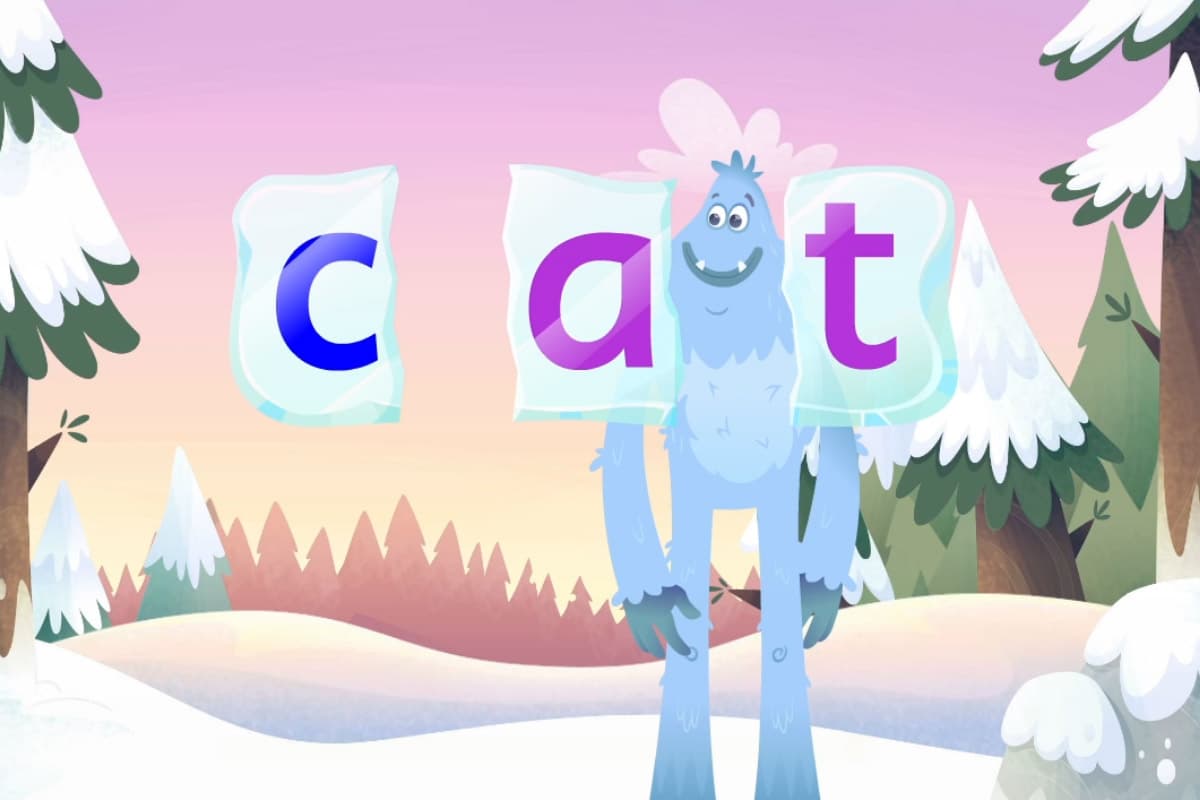
One of the many phonemic awareness activities in Fast Phonics.
Children also work with onsets and rhymes, such as c-at, b-at, r-at, so that they become adept at breaking words into smaller parts.
Carefully sequenced interactive activities build listening skills, as well as word, syllable and phoneme knowledge.
Phonics
Reading Eggs and Fast Phonics explicitly teach sound segmentation and blending, connecting letters, sounds and pronunciation.
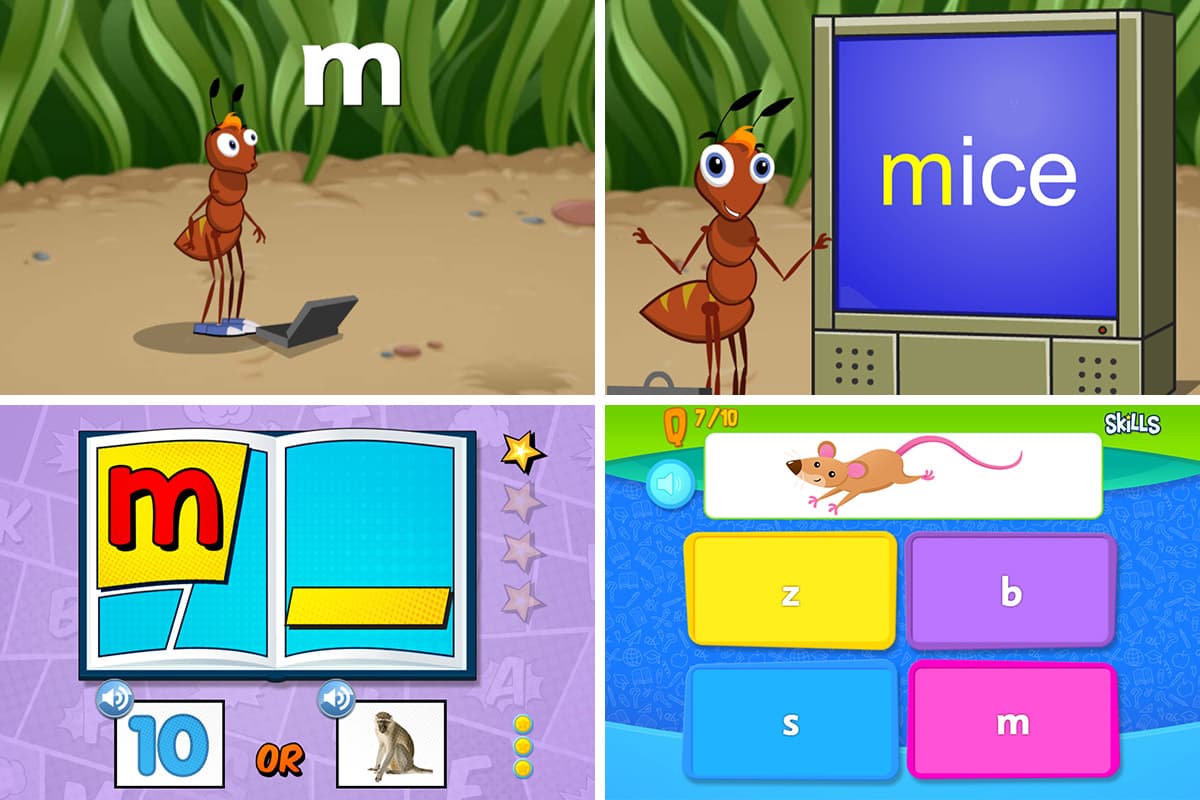
Children are explicitly and systematically instructed and assessed on the 44 grapheme-phoneme correspondences in a sequenced curriculum.
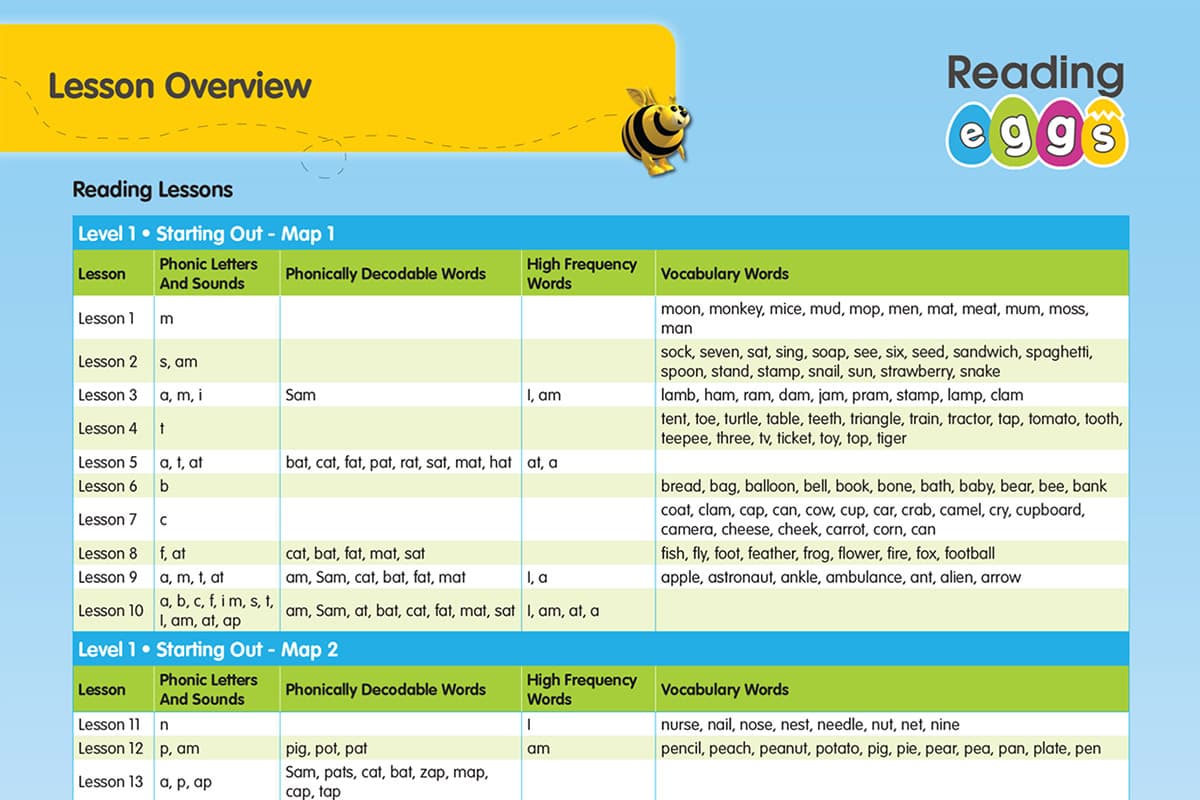
The online Reading Eggs Library contains over 450 decodable books from a range of publishers that can be used to practise specific phonics skills. Each decodable reader includes a comprehension quiz at the end.
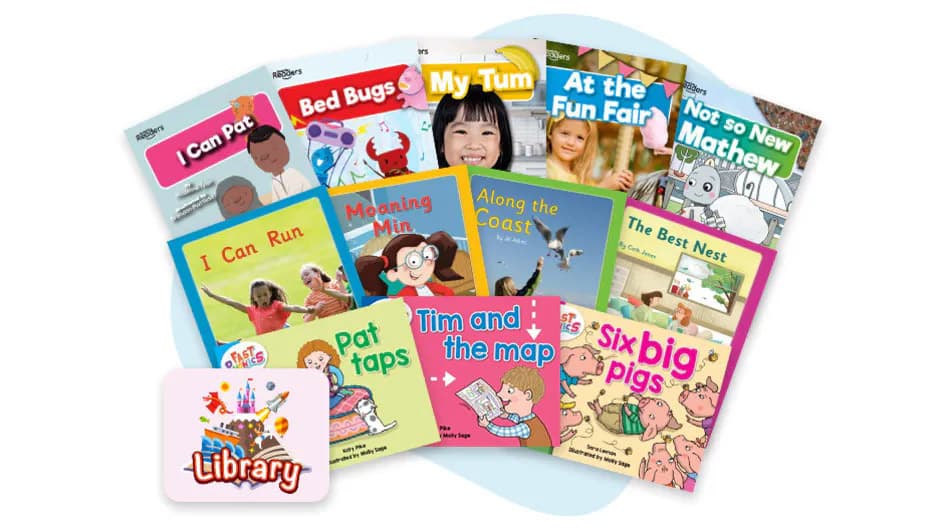
Fluency
Fluency means readers are no longer 'decoding' each word they encounter. They have developed the knowledge and skills to recognise words automatically, accurately and quickly. Fluent readers can now focus on higher-order reading goals, i.e. reading for meaning.
Reading Eggs and Fast Phonics support fluency through repeated practice of key phonic skills and high frequency words, which enhance automaticity in letter-sound and word recognition.
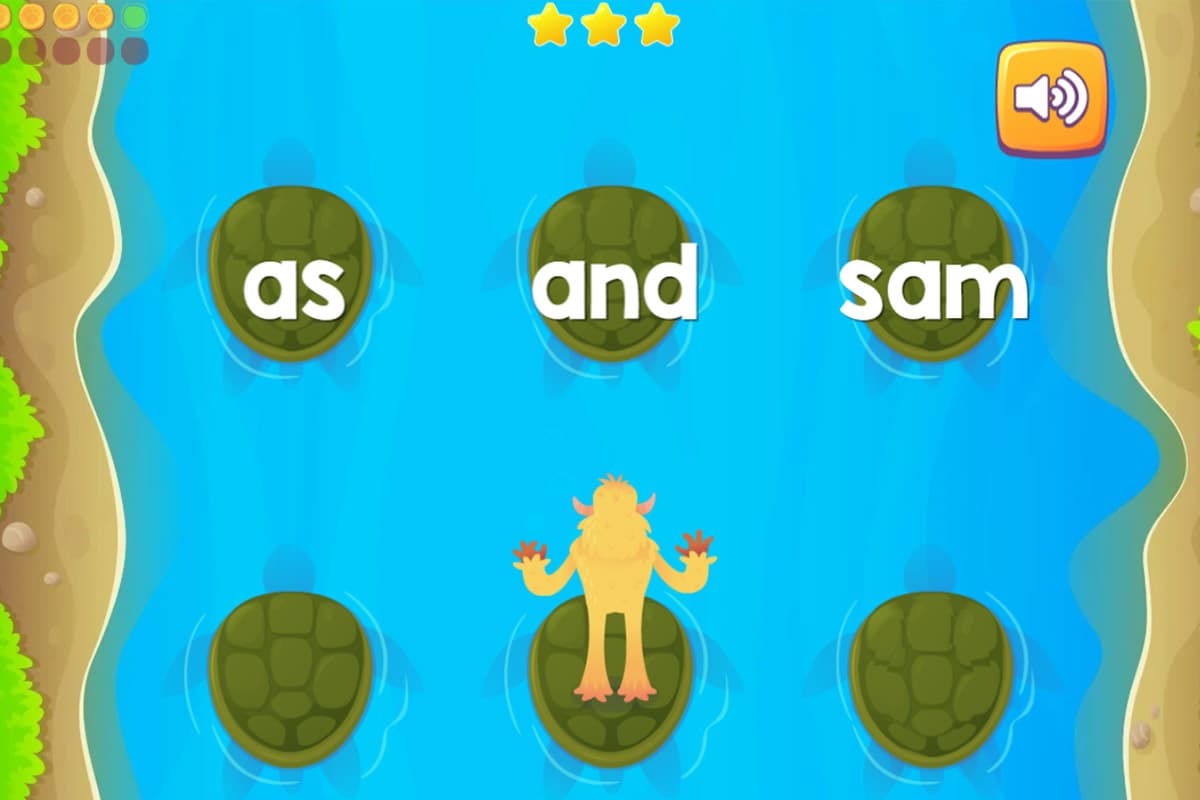
For children to develop reading fluency, they need to read a diverse array of texts that sit at the correct level for them. The online Library of over 4000 levelled books provides children with opportunities to practise what they’ve learned in the lessons. The books can be read multiple times.
The new Read Aloud feature (coming in 2024) will allow teachers to assign any text from the online Library for fluency practice. Students will record themselves reading the assigned text for one minute, then the recording will be sent to their teacher for assessment.
Help for Struggling Readers
Structured online reading programs like Reading Eggs provide opportunities for struggling readers to learn at the right pace through lessons personalised to their abilities. The engaging, interactive ‘game-like’ nature of the programs motivates children to stay on task and keep learning.
The Placement Test at the start of our programs assesses and places children at the correct reading level, regardless of their age in years. This enables the programs to deliver lessons tailored to a child’s reading abilities.
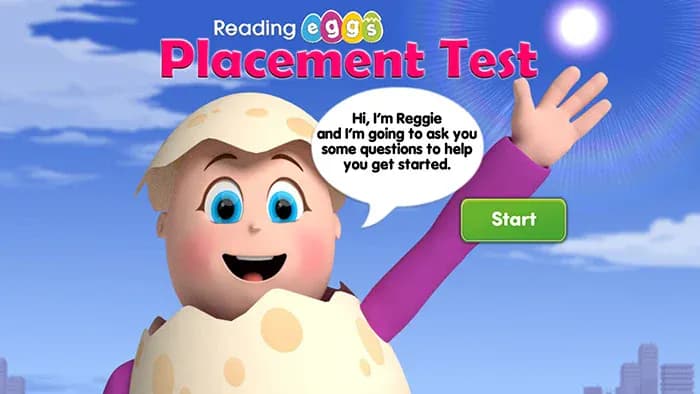
Children with learning disabilities, such as autism and dyslexia, can benefit from specialised reading materials. The Library includes 15 books specifically designed for children with dyslexia. The books have dyslexia-friendly fonts and simple layouts to improve accessibility.
An independent study carried out over six weeks showed that 93 per cent of students increased their reading proficiency score by at least one whole level after using Reading Eggs.
Give your child the best chance for reading success!
Reading Eggs is based on solid scientific research and the six key sub-skills required for proficient reading. By incorporating our structured literacy programs into your child’s daily routine you’ll be helping your child to catch up, keep up and level up in their reading. Start your free trial today!
Vocabulary
Building vocabulary is crucial for language development and literacy. A wide variety of new words should be introduced through meaningful and frequent encounters.
Reading Eggs and Reading Eggspress exemplify this approach by introducing content-area words with visual support to ensure context is understood. The visual support also enhances word knowledge and retention.
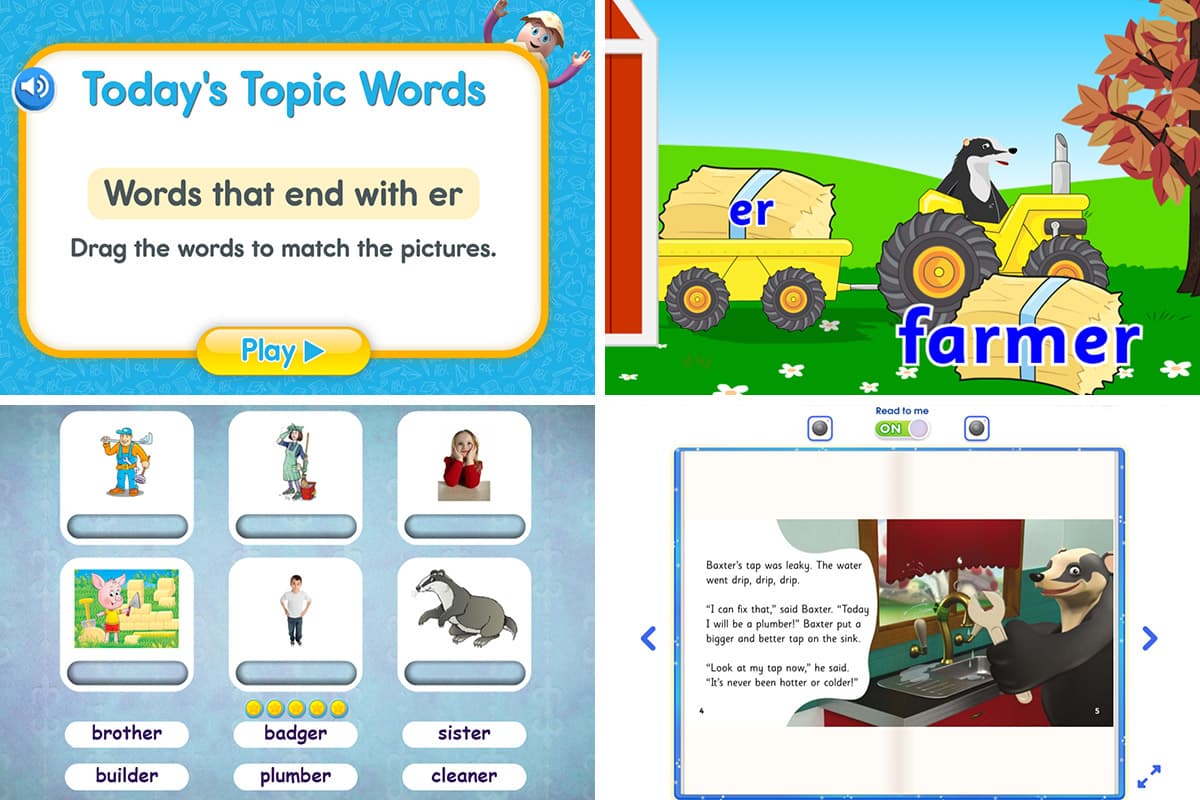
The Reading Eggs Library includes both fiction and nonfiction online children's books across a wide range of topics. There are many different genres to delight children of all ages and reading levels.
Reading the online books expands vocabulary and subject area knowledge, as well as nurturing a love of reading.
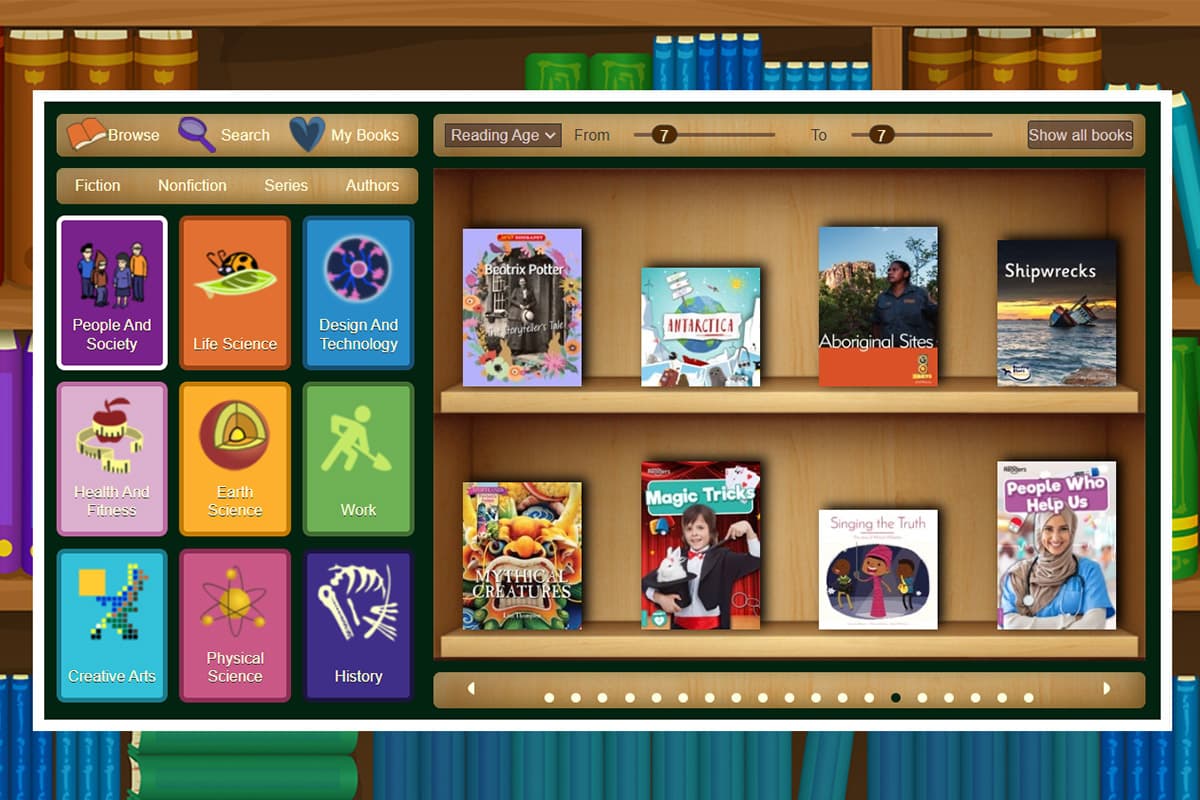
Comprehension
In Reading Eggs and Fast Phonics, comprehension practice is part of every lesson. This is done in a variety of ways and builds in difficulty as a child progresses through the levels. From word, sentence, and whole text comprehension activities, to story sequencing and book quizzes.
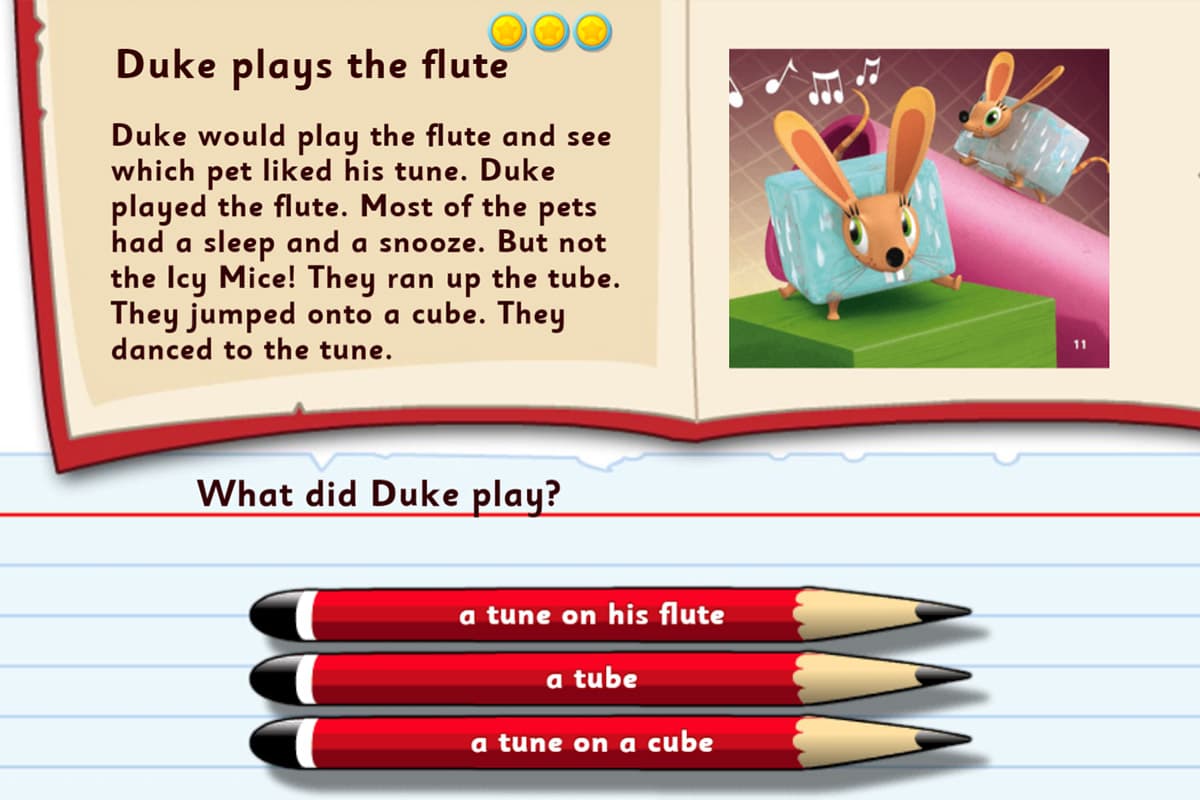
In‑built comprehension quizzes ensure children understand what they are reading.
Reading Eggspress targets comprehension with focused lessons, activities and assessments to encourage deep reading of a wide range of texts.
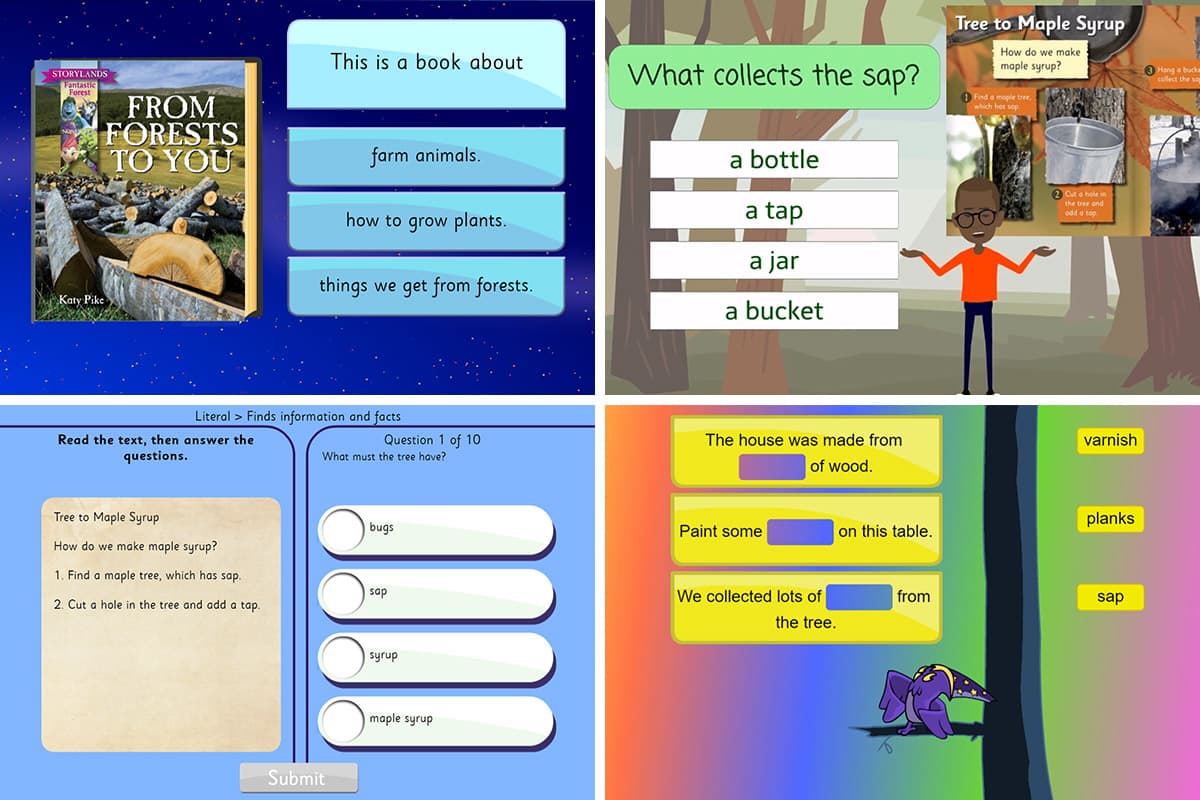
The Evidence-Based Science of Reading Eggs
Teaching should also be systematic. This means students learn sequentially, with increasingly complex concepts introduced and practiced over time.”
The Reading Eggs programs are systematic, explicit and cumulative, presenting concepts in a logical order from the easiest to the most complex.
Reading Eggs, Fast Phonics and Reading Eggspress all use explicit teaching with guided practice to introduce new skills. Animated lessons combine teaching videos, short interactive activities, and playful exercises to practise each skill.
By focusing on one skill at a time and providing opportunities for repeated practice, the programs reduce overwhelm and promote success.
Find out more about the science behind Reading Eggs.
Motivation, Rewards and Effective Feedback
The learning environment in Reading Eggs, Fast Phonics and Reading Eggspress fosters a feeling of success in children, encouraging progress with positive feedback and rewards. This support boosts confidence, motivating students to spend more time on-task and to continue to make real progress in their reading skills.
This is the key skill they need for success in many subjects, not just reading.
You can read and download the full Grattan Institute ‘The Reading Guarantee’ report here.
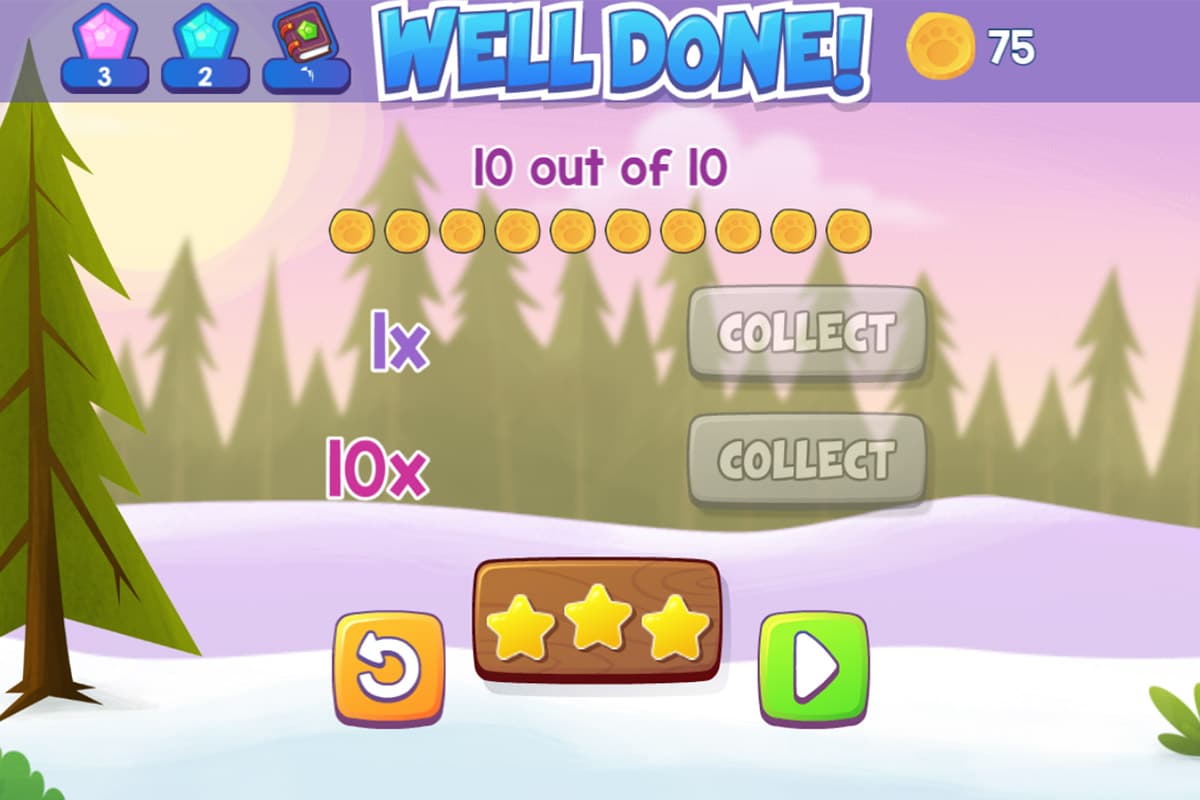
Give your child the best chance for reading success!
Reading Eggs is based on solid scientific research and the six key sub-skills required for proficient reading. By incorporating our structured literacy programs into your child’s daily routine you’ll be helping your child to catch up, keep up and level up in their reading. Start your free trial today!






